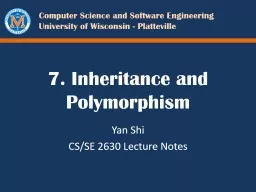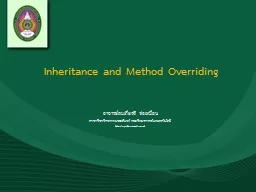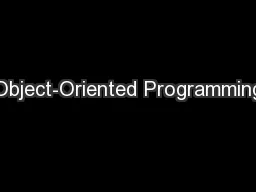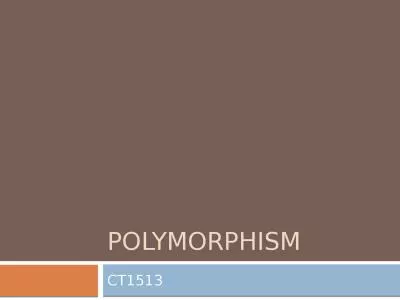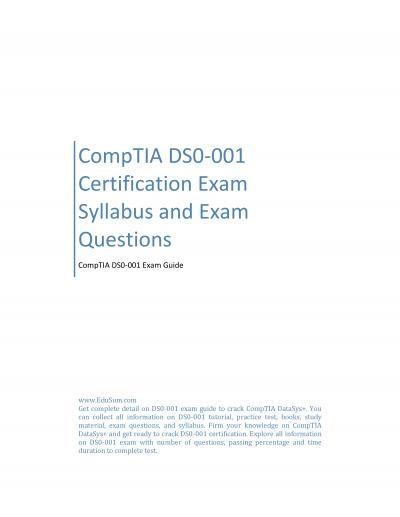PPT-COMP 110-001 Inheritance and Polymorphism
Author : tawny-fly | Published Date : 2018-03-18
Yi Hong June 09 2015 Today Inheritance and polymorphism Inheritance and Polymorphism Inheritance allows you to define a base class and derive classes from the base
Presentation Embed Code
Download Presentation
Download Presentation The PPT/PDF document "COMP 110-001 Inheritance and Polymorphis..." is the property of its rightful owner. Permission is granted to download and print the materials on this website for personal, non-commercial use only, and to display it on your personal computer provided you do not modify the materials and that you retain all copyright notices contained in the materials. By downloading content from our website, you accept the terms of this agreement.
COMP 110-001 Inheritance and Polymorphism: Transcript
Download Rules Of Document
"COMP 110-001 Inheritance and Polymorphism"The content belongs to its owner. You may download and print it for personal use, without modification, and keep all copyright notices. By downloading, you agree to these terms.
Related Documents





